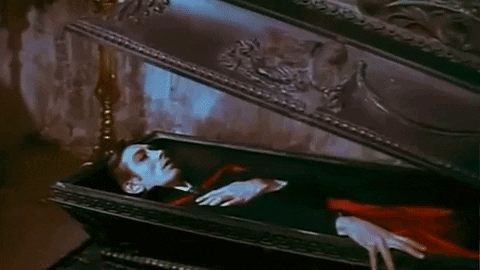Etymology
The first of the vampire facts! Let’s get started with something… well, I would say relatively simple, but the fact is that it isn’t. That was confusing, right?
So we will begin with a bit of etymology, specifically on one word – “vampire.”

What’s perhaps most interesting – and most important – to remember with etymology is that we don’t actually know where a lot of it comes from. In fact, a lot of words, even some you use on a daily basis, have very disputed origins. People like me hotly debate things like the word “berserker” (which doesn’t have anything to do with bears), and yes, it really matters to us!
So let’s begin with the word “vampire.” In legend, there are many, many different “kinds” of vampires, per se. And then there are those that some scholars consider vampires, but others do not. There are almost too many to conceivably name in just one post. I won’t be worrying about the etymology of all those different theoretical vampire types, however – they will be covered in other posts! For now, I’m focusing entirely on the etymology of the one now-considered-catchall term: vampire. I won’t be trying to define what a vampire is, either, because that’s for my next vampire fact.
The word “vampire” may or may not have originated in 1732 – there are variants across Europe: “vampire” from 18th century France, “vampir” from 1732 in Germany in reference to Hungarian vampires, “vampir” from Hungary…
And the term “vampire” itself was first used in reference to Hungarian vampires, specifically, in both English and German, from the Hungarian “vampir.” This in itself is thought to have originated from “opiri,” from Old Church Slavonic.
“Opiri” is also the source for “vampir,” Serbian; “vapir,” Bulgarian; “uper,” Ukranian…
And according to Slavic linguist Franc Miklošič, the term may have originated with “ubyr,” meaning “witch,” in Kazan Tatar. Other specialists strongly doubt this, however.
So what does “vampire” really, technically mean? You know, in the way that “werewolf” literally means “man-wolf”? We have no idea.
“Vampirism” in itself is actually also a very old term, originating from around 1737. It, of course, is simply a combination of “vampire” and “-ism,” a suffix from French -isme that, in itself, comes from Latin, which got it from Greek (-ismos)… Anyway. I love etymology, can you tell?
What gets me about vampire etymology, too, is that, so often in pop culture today, we get to see vampires referred to as “vampires” still – but with werewolves, they are often called something else, often a nonsense word derived from actual words, like “lycan.” The etymology of “werewolf” and “lycanthrope”/”lycanthropy” is also very fun and interesting (and less mysterious than “vampire”’s), and there’s no reason why those terms aren’t just as captivating as the word “vampire.” I want to see more werewolves in things again, not “shifters” or “wolves” or “weres” or “lycans” or…
Anyway. At least most people still call vampires “vampires,” I suppose.